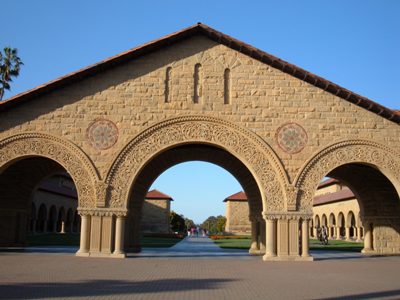Two Google-related university teachers have just done a mindblowing experiment that overturns conventional university education.
We know that the Fourth Revolution will overturn most institutions we’ve inherited from the Industrial Age. The latest to date: Universities.
It’s still only a precursor, still it gives us the direction for what will happen in the next 10-20 years: the first online course from Stanford University, a course on Artificial Intelligence, has been given late 2011. The mindblowing detail of this experiment that ended up being a revolution is given in this post by Eric Salmon, “Udacity and the future of online universities“. Unexpectedly, more than 160,000 students from all over the world registered and the professors had to setup a dedicated website!. Extracts from the post:
“There were more students in his course from Lithuania alone than there are students at Stanford altogether. There were students in Afghanistan, exfiltrating war zones to grab an hour of connectivity to finish the homework assignments. There were single mothers keeping the faith and staying with the course even as their families were being hit by tragedy. And when it finished, thousands of students around the world were educated and inspired. Some 248 of them, in total, got a perfect score: they never got a single question wrong, over the entire course of the class. All 248 took the course online; not one was enrolled at Stanford”
WOW. WOW! And it’s not finished:
“The physical class at Stanford, which dwindled from 200 students to 30 students because the online course was more intimate and better at teaching than the real-world course on which it was based”
Read the rest of this mindblowing post! And right now, these teachers have decided to create a new online university, Udacity, which will propose soon online courses on a number of subjects, IT-related mainly.
So, what is really new? For some years already, large universities have made their courses accessible on the internet (see for example, Stanford Engineering Everywhere or MIT opencourseware); by this we mean the course material.

However, the lectures have never been given online, nor have students be graded or have taken exams exactly like if they were in the class. Sure it just got tried – and it works!
As many Industrial Age institutions, the classical university institution is now under siege. Sure, there will be a few more years before we’ll see macroscopic effects: this experiment has been done by IT-savvy professors who also work at Google, for IT-savvy students; it will take time before this spreads to the entire faculty and all subject matters.
Still, the university institution is in question and will soon be exactly in the same conundrum like physical newspapers or the publishing industry are today. Their economic model will become unstable because it is funded by big Industrial Age corporations that seek to produce commoditized degree-holders (see the blog post on “Leave alone the academic executive programs. Go and learn real life leadership! It’s cheaper and better!“). The logic of geographical concentration of university to enhance communication is obsolete as we have just seen demonstrated. So, be ready to see big changes. And Google is at the forefront of the new online university (the two teachers of that particular course are also working at Google), so that we can expect that Google will see the interest of reinventing the business model, leveraging lower fees to a much larger number of students.
Should the current universities not reinvent themselves in time (which is probable in view of the fate of most institutions when comes a fundamental revolution), other players will replace them, and they will disappear in the heap of Industrial Age institutions that did not manage to transform themselves…
If you want more in-depth analysis, more comments on this revolution in Alex Tabarrok’s blog: The Coming Education Revolution (August 2011) and Udacity (January 2012).
This post has been published early February in a slightly different version on Social Media Explorer: How Google is on the Way to Take over the Higher Education Market, where it has been viewed more than 700 times.
